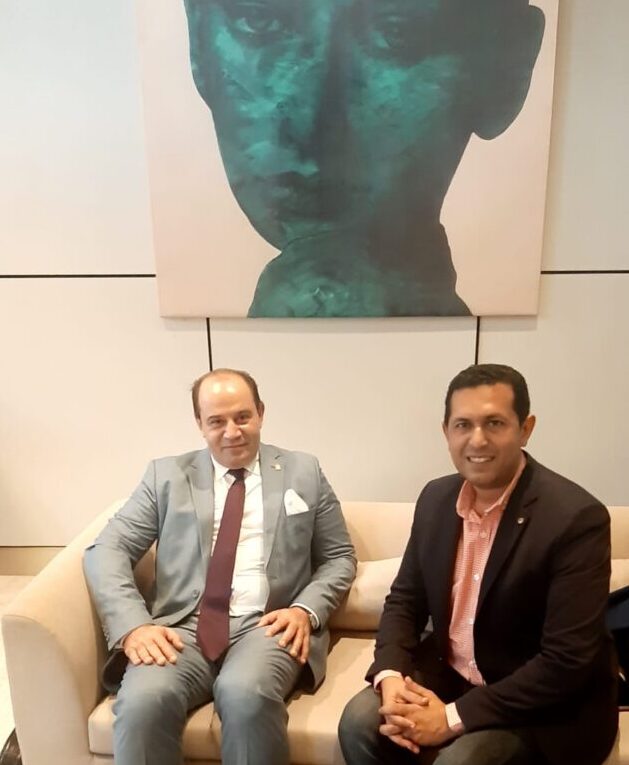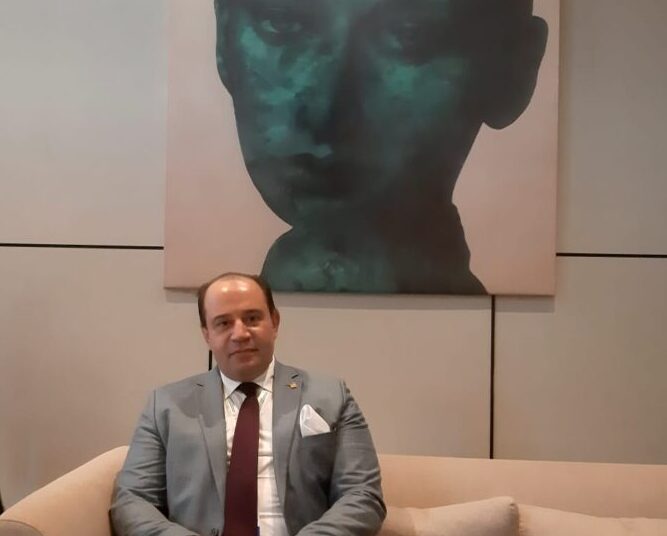NIAMEY (Niger) – Egypt attaches great importance to integration with other African states, opening up new channels for political, economic and cultural co-operation with these states every day, in its struggle to build resilience in the continent.
This integration will achieve the sustainable development goals enshrined in Africa’s Development Agenda for 2063.
The same goals were stressed during the 17th Extraordinary Summit of the African Union on Industrialisation and Economic Diversification in Niamey, Niger, from 20 to 25 November.
The summit was held under the slogan ‘Industrialisation in Africa: Renewed Commitment towards Inclusive and Sustainable Industrialisation and Economic Diversification’.

Those attending the summit especially focused on means of enhancing industrial co-operation between African states.
They also discussed means of pushing economic development and growth in the continent forward and creating more jobs for its youth.
Egypt’s Ambassador to Niger, Sayed El-Salahey, described the summit as an ‘extraordinary event’.
“It aims to rally up support for drawing up a continental plan to advance industrialisation in Africa,” the ambassador said. “Africa is covered with all types of natural resources,” he added to The Egyptian Mail on the side-lines of the summit.
The summit was held as African states worked hard to co-operate in the production of fine products whose returns will benefit African economies.
Advanced industrialisation, the Egyptian ambassador said, would serve the basic notion of the African Continental Free Trade Area.
“Industrialisation will benefit inter-African trade,” the ambassador said. “We know that the way is still long, but Africa takes serious steps to fulfil the goals of industrialisation and trade integration.”
The ambassador’s remarks are given credence, meanwhile, by inter-Africa trade figures.
Trade between African states makes up only 15 per cent of their overall trade with the world.
He said Africa possesses diverse primary raw materials, which distinguishes it from all other continents.
“These resources have not, however, been fully discovered or exploited,” the ambassador said.
He said Africa’s economic rise hinges primarily on the presence of a coordinated action plan and a legally-binding framework that ease the exploitation of the continent’s resources.
Ambassador also referred to the vast human potential the continent possesses.
Nevertheless, he said, African workforce needs training.
The Egyptian Embassy in Niamey works hard to match economic and trade relations between Egypt and Niger with what the ambassador described as ‘excellent’ political relations between the two countries.
Egypt has established political relations with Niger since its independence from France in 1960.
Niger’s first president, Hamani Diori, visited Egypt after his country’s independence and met revolutionary Egyptian leader Gamal Abdel Nasser.
The visit opened the door for strong Egyptian support to Niger in all fields. Egypt constructed Niger’s first multi-level building. Called al-Nasr, the building was opened in Niamey in January 1967.
Egypt also sent doctors, school teachers and scholars from al-Azhar to Niger. These educationists and doctors contributed to advancing the Nigerien society. Most of Niger’s top government figures received their education in Egypt, especially at al-Azhar University in Cairo.
Ambassador El-Salahey said the Egyptian-Nigerien joint farm is a symbol of strong co-operation with Niger.






Discussion about this post